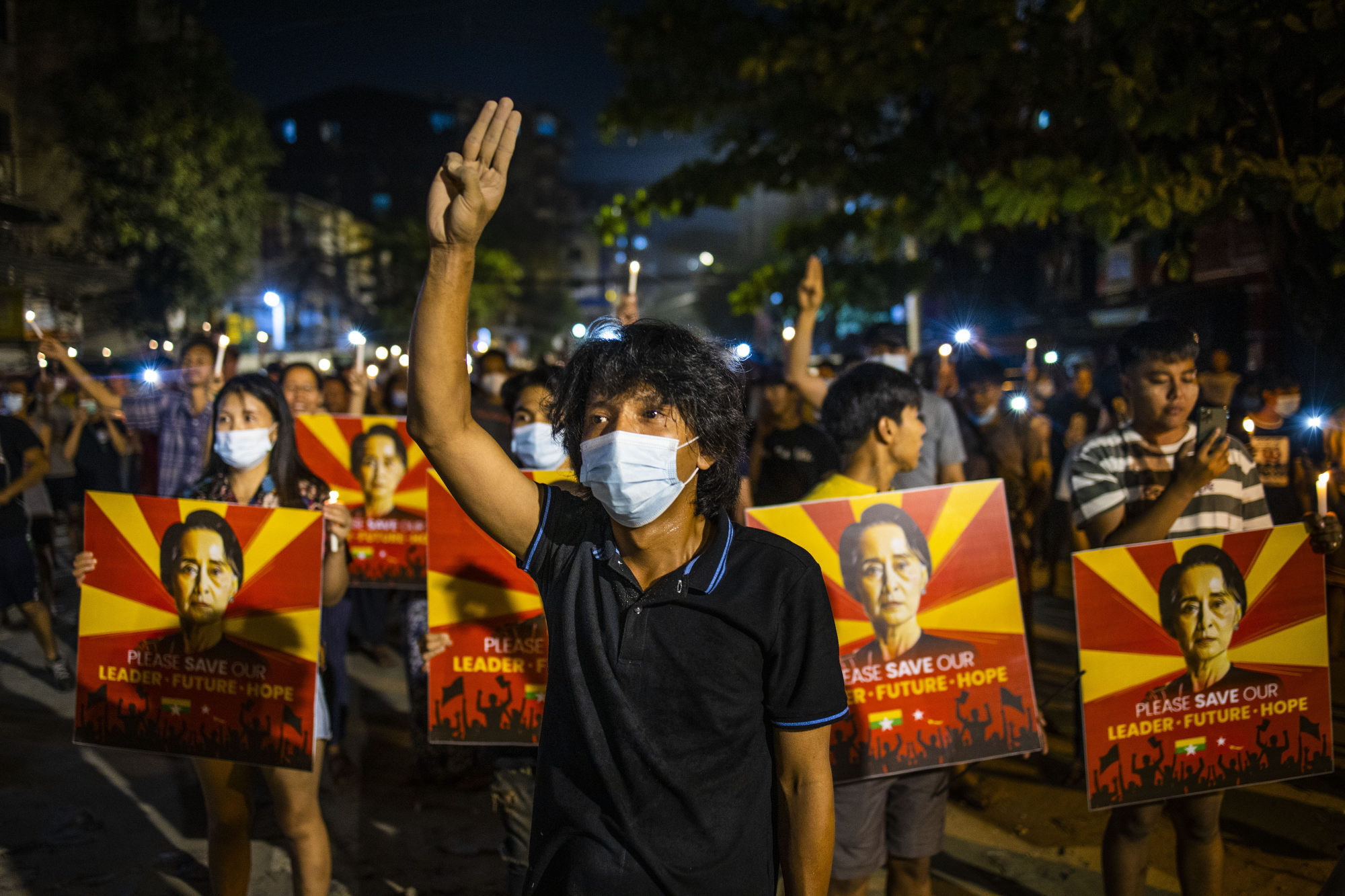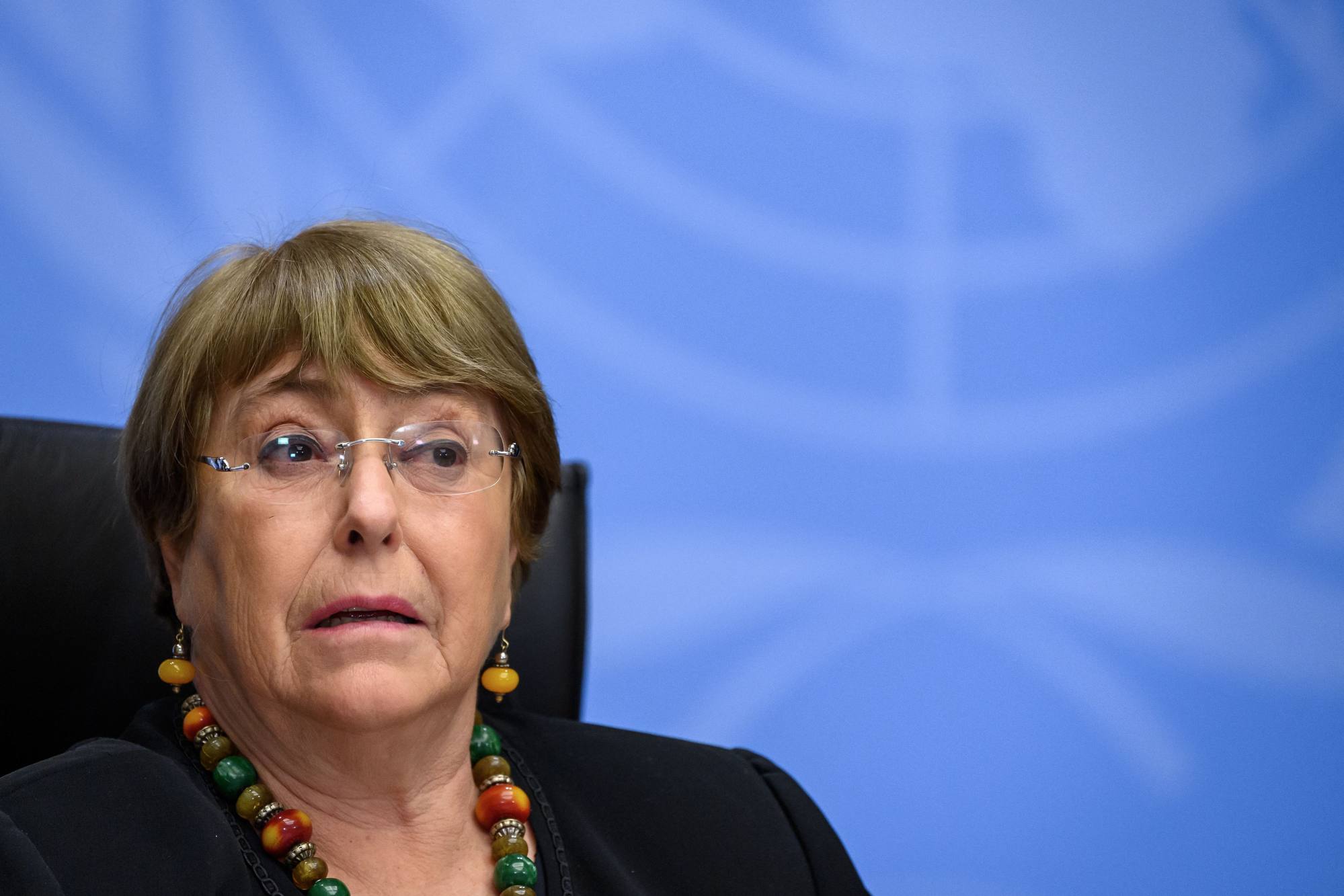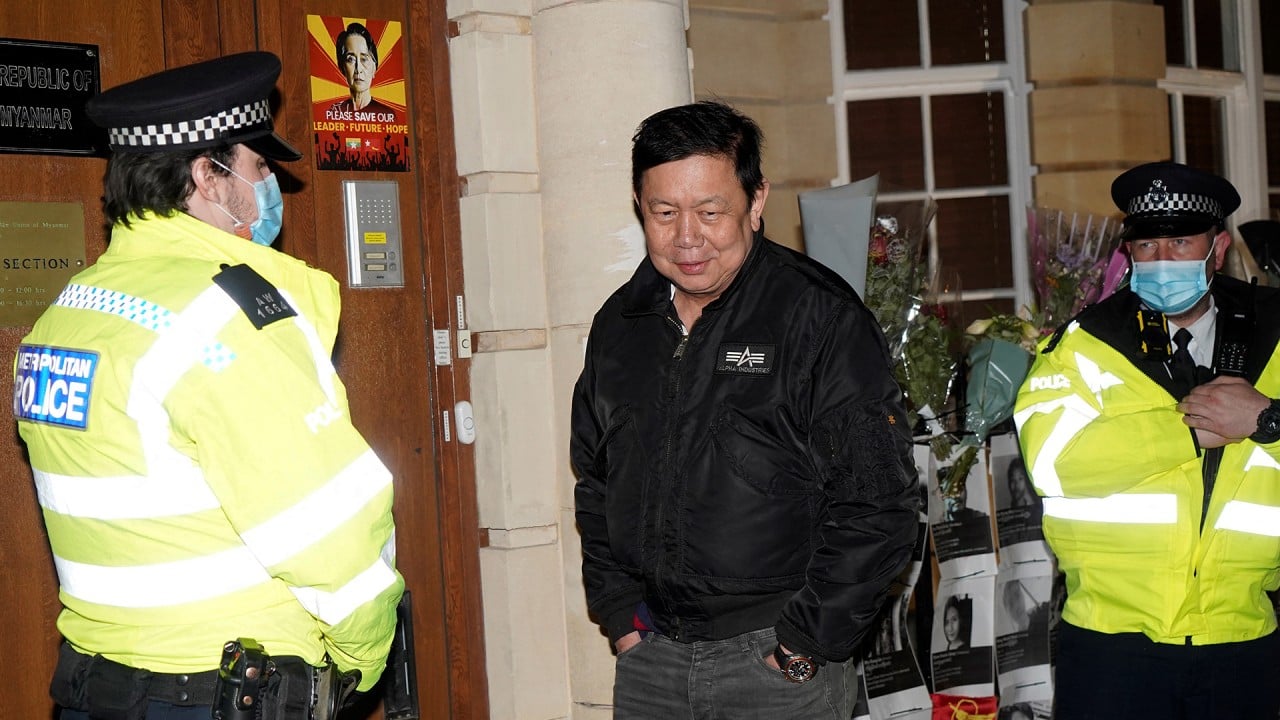
Engage but don’t recognise Myanmar’s ruling junta, Suu Kyi’s UN envoy tells Asean
- Kyaw Moe Tun tells This Week in Asia that Southeast Asian countries should as a priority urge the Tatmadaw to immediately stop killing innocent civilians
- He says there is still hope for action from the UN Security Council – and he is ‘very happy’ to be charged with high treason
There are no indications yet whether the meeting will be attended by the architect of the February 1 coup, army chief Senior General Min Aung Hlaing.
In a Zoom interview with This Week in Asia, Kyaw Moe Tun – who has defied the junta’s orders to stand down and now backs the country’s parallel civilian government – said he hoped Asean leaders would as a priority urge the military to immediately stop killing innocent civilians.

Suu Kyi, President Win Myint and other NLD figures have been in detention since the coup.
Engagement with the junta was crucial to solving the crisis but “it should not be translated into acknowledging or recognising the military at this point,” he said.
The ambassador said it was important that Asean and other players seeking to defuse the situation engage the Tatmadaw, as the Myanmar military is known, in a “meaningful” manner that was not “one-sided”.
He said international efforts to restore peace and democratic rule in the country through diplomatic means should also involve talks with the Committee Representing Pyidaungsu Hluttaw (CRPH). The grouping, made up of members of the NLD, is seeking international recognition as the rightful government of Myanmar.
The grouping’s foreign ministers met via videoconferencing on March 2, with the junta represented by its appointee for the foreign minister post, Wunna Maung Lwin. The talks were widely seen as having little impact on the Tatmadaw’s hardline position against unarmed protesters. The force has been accused of killing more than 700 people since the beginning of the coup.

Aside from engagement, the Tatmadaw were likely to change course only if pressure – through additional sanctions and a suspension of its revenue flow – was ratcheted up, Kyaw Moe Tun said.
He said he remained hopeful that the UN Security Council would adopt a strong resolution that would mandate such action from all states.
Throughout the interview, the ambassador emphasised that countries needed to make ending the violence a priority.
“It is not going to be easy, it will be quite difficult, but we have to try it. It’s my duty to get some resolution from the Security Council. This is, you know, about saving the lives of innocent civilians … it is a humanitarian crisis,” he said.
In an address to the Security Council last Friday, he reiterated the CRPH’s key demands for tougher sanctions on the military and its associated businesses, a complete arms embargo, the release of political prisoners including Suu Kyi, and a “no-fly zone” in certain areas.
The last demand was made in light of the Tatmadaw’s use of fighter jets to attack an area controlled by an armed ethnic group.
It is not going to be easy, it will be quite difficult, but we have to try
Some among the more than two dozen armed ethnic groups in the country have indicated they back the anti-coup protesters in their effort to pressure the Tatmadaw to restore democracy.
The envoy revealed in the interview that “Plan B” efforts were under way for the matter to be discussed at the UN General Assembly.
Unlike the Security Council, which can issue legally binding resolutions, authorise sanctions or military operations, the General Assembly has no real power as its decisions are not binding on member states.
Nonetheless, discussion of the crisis at the assembly – where all 193 member states have a say – is seen by some activists as an alternative to obtaining a form of UN censure on Myanmar’s generals in the event there is an impasse at the Security Council.
Kyaw Moe Tun said efforts were under way by “Liechtenstein and other like-minded countries” to introduce such a resolution.
On his personal ordeal, having been ordered to stand down by the Tatmadaw and subsequently charged in absentia with high treason, the ambassador said he was focused on his job as a diplomat appointed by the country’s rightful and democratically elected government.
Kyaw Moe Tun emerged as a darling among the mostly Generation Z and millennial anti-coup protesters after he delivered a dramatic speech at the UN General Assembly on February 25 calling for international help “to immediately end the military coup, to stop oppressing the innocent people, to return the state power to the people and to restore the democracy”.
The junta later sought to replace him with his deputy Tin Maung Naing, but the latter resigned a day after being appointed. The UN continues to recognise Kyaw Moe Tun as Myanmar’s envoy to the world body in New York.
“I am very happy [about being charged with high treason] as they made it very clear that I am with the people of Myanmar and I am not with the military. I thank them because they drew the line to say I am with the people.”


